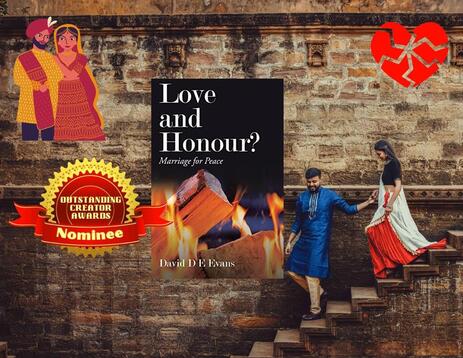|
Score: 90/100 (9.0 out of 10)
This little book about social progress in relation to romance tragedy is surprisingly potent and unexpectedly entertaining! What a way to pack a punch in only about 60 pages! How would we describe this unique and fascinating little book? Well, it is structured and reads like a dissertation. You know, like those things you write at the end of a PhD program? We don't know if that's what it is, but it certainly seems like it is. What's actually a bit different and sometimes challenging is that the delivery of this information is often very unemotive and dry. Not only that, but it's a little bit of mental gymnastics to figure out what these case studies have to do with any point the author is trying to make. We get that this is a book about tragic romances in the context of different cultures and societies. Ok. But there's almost a feeling like the author might be subliminally supporting what seem to be objective evils by presenting things like arranged marriages, bride murders, and female infanticide in an eerily unemotional and matter-of-fact way. It's almost as if they're saying, “That's just the way that it is.” Well, they're totally not, but that's just a strange feeling we got while reading this as it is written. It took us a while to figure out that the author's thesis is really looking at how culture and societies are changing to push back against things like arranged marriages, bride murders, and female infanticide. It really shouldn't have been that hard for us to figure out. But there are times when these practices seem glorified or glamorized by these stories—stories that should really horrify us. Now, to the author's credit, a lot of stories are just like that, especially mythological ones from Asia—especially South Asia. The author stayed true to the spirit of the original stories. Another thing to note is that suicide plays heavily in the stories in this book. If that's something that's triggering to you, be wary. And that's another thing that almost seems glorified or glamorized somehow. It's really strange. No, the author isn't advocating for or excusing suicide explicitly, but the stories they present imply that it is warranted in some situations. It's not! If you're triggered, go call a hotline immediately. No one relationship is worth taking your life over. There are plenty of fish in the sea. There is even a moment when a police officer addresses the public about the death of a couple, implying that the couple is not at fault for committing the act to take their own lives because they were pressured and bullied by their families for being together. Well, were they in a burning building with no way out but to jump out of it? Did they have a gun pointed to their head? That sounds harsh, but... suicide should not be glamorized in the way it is in these stories. It's not glamorous. It's sad, tragic, and almost always unnecessary. As people who've lost loved to it, we can attest to that. On one hand, the author seems to be saying that there are Romeo & Juliet type stories around the world and that people of different races, classes, ethnicities, and religions find themselves in relations where one or both sides don't fully approve of their union. On another hand, the author constantly supplies reasons and excuses for why the parties at fault do and believe the things that they do—owing to tradition or personal biases against a religion for example. Ok, we get it. This is an extended research paper and takes an objective look at these cases, but the objectivity in these cases is almost chilling. Could you imagine if you were a researcher presenting information about a parent killing their children, then presented it as something like: “They died. They died because their parents no longer wanted them to live. They no longer wanted them to live because them living was viewed as dishonorable.” Ok, well, is there something that's being done to keep that from happening? Can we do something to keep that from happening? What are the solutions? Information is usually just presented to us, again, in such a mater-of-fact, cold, dry manner. But here's the thing... this book is, again, surprisingly interesting and even entertaining at times. The reason is it's almost like reading a National Geographic article. This book takes us westerners into the minds and shoes of people—both real and fictitious—in other parts of the world. We get to read case studies of tragic romances in other cultural and social contexts than we would normally see in America or Europe. That makes this an incredibly worthwhile read! Check it out on Amazon!
0 Comments
Leave a Reply. |
Archives
July 2024
Categories |

 RSS Feed
RSS Feed